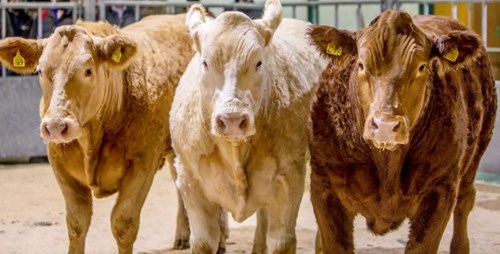BVD Eradication in Scotland: Phase 6 Important Changes

Scotland’s Bovine Viral Diarrhoea (BVD) eradication scheme has been in place since 2010. Since then, the national herd has made good progress towards eradication. Prior to the start of the scheme, it was estimated that 40% of breeding herds in Scotland had evidence of exposure to BVD virus. This was reduced to 15% as of 2017. Since 2010 over 7000 virus positive animals have been removed, improving the health and welfare of cattle across the country.
BVD virus in cattle has a huge impact on herds in terms of economic cost, causing abortion, infertility, immunosuppression, failure to thrive and death. Eradicating BVD from a herd has a significant positive impact on calf health, growth rates and future productivity.
All breeding herds in Scotland must perform annual screening to determine their herd status for BVD, which is recorded on ScotEID. Restrictions are placed on herds that have a not-negative status. Currently 8% of herds have a not-negative status meaning they cannot move cattle, other than direct to slaughter, without first having an individual BVD virus negative, or assumed negative, result for each animal. Some herds may be sitting with a not-negative status when BVD is not present in the herd. In addition to BVD being present in a herd a not-negative status could result from:
- An overdue annual herd test
- An incomplete test due to missing tag results
- Introduction of untested or ‘risky’ animals
It’s essential that cattle keepers regularly check their BVD herd status on ScotEID. If you have a not-negative status, work with your vet how best to resolve it. To protect BVD-free herds:
- Herds retaining a virus-positive animal for more than 40 days are flagged on ScotEID, with movement restrictions applied to all ON movements.
- Herds with a not-negative status for over 15 months must undergo a Compulsory BVD Investigation (CBI). This requires virus testing of all animals in the herd. (Cows with BVD virus-negative calves are automatically classified as BVD Assumed Negative).
Phase 6 of the scheme started on 1 July 2025, with increased obligations for non-breeding herds, modified restrictions for those holdings with persistently infected (PI) animals and relaxation on the use of management tags as sampling tags.
From 1 July 2025, non-breeding herds, who currently only have an obligation to test any calves born within 40 days of birth, will have the same requirements as breeding herds when it comes to virus positive animals. This will require that virus positive animals must be housed separately. If the animal is retained on the holding after 40 days the holding will be listed on ScotEID. For herds that have virus positive animals, restrictions to movements onto the holding will now only come into force after 40 days. This will allow for retesting and/or removal of the animal. It is advised that the retest is carried out at least 3 weeks after the first sample.
BVD sampling from birth can from 1 July 2025 be carried out using management tags. This will facilitate further measures coming into place on 1 February 2026. From this date if a dam moves into a herd during pregnancy, her calf must be BVD virus tested within 40 days of birth, or before it moves off the holding – whichever occurs first. This is to protect herds from the risk of calves from Trojan cows. A Trojan cow is a pregnant animal that is carrying a PI calf.
From 1 February 2026 further restrictions for non-compliant Compulsory BVD Investigation herds will come into force. For herds that have entered a CBI, if this is not completed within 13 months, their holding will be listed on ScotEID, and restrictions will be applied to all ON movements.
All cattle keepers in Scotland have been sent a flier from ScotEID explaining these changes and what they need to do to comply with the BVD legislation. If you have any queries relating to these changes or the BVD status of your herd, contact ScotEID.
Scottish producers have an opportunity to contribute their experience to a UK-wide BVD project being carried out by SRUC and University of Nottingham. To find out more or take part click here.
Helen Carty, SRUC Vet Services Veterinary Centre Manager, Helen.Carty@sruc.ac.uk

Unearthed is the exclusive SAC Consulting members' monthly newsletter. Unearthed offers insights and tips from our experts on what we think is in store for farming and crofting in the coming months in order to protect and enhance your business.
Posted by Unearthed News on 16/07/2025
